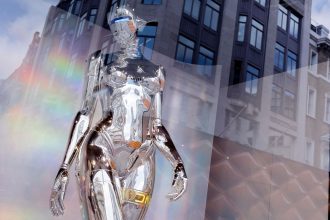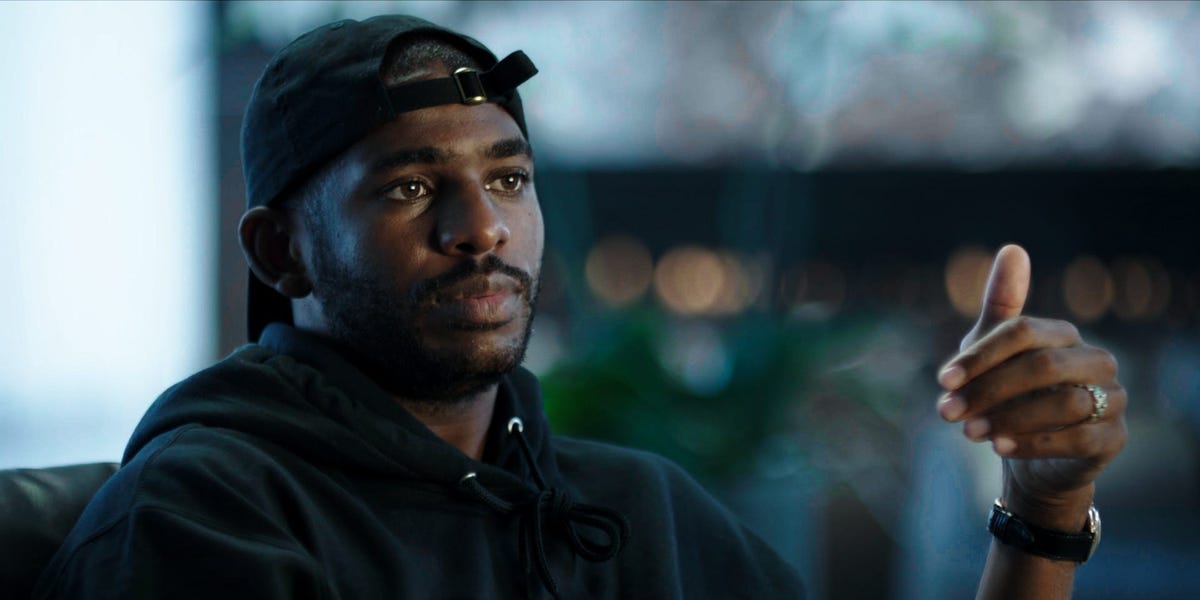- It’s not just Barbie — lots of big brands are getting serious about making Hollywood-style entertainment.
- They’re trying to get consumers’ attention as traditional ads are getting skipped or ignored.
- Insider identified 13 new and established players making the biggest moves in the space.
“Barbie” may be the movie of the summer, but lots of other big brands are getting serious about making Hollywood-style entertainment.
They’re trying to capture consumers’ attention as traditional ads are getting ignored.
The concept is nothing new — Procter & Gamble sponsored radio shows in the ’30s, giving us “soap operas” — but brands are getting more more ambitious, working with prestige producers like Ron Howard and Brian Grazer’s Imagine Entertainment and Oscar-winning Michael Sugar to make high-quality films, not just well-disguised ads. Companies also getting more systematic about tracking the projects’ outcome so they can justify the cost.
Brands are taking a varied approach to the level of control they seek, but it’s widely acknowledged by both producers and marketers that the more control a brand is willing to give up in the creative process, the less commercial the result — and the more satisfying for audiences as entertainment.
Such work is still seen as tainted by some in Hollywood, but attitudes are changing. Brands are also making the case to distributors that they can bring marketing firepower to the table to help projects get a big audience. Some in the brand entertainment space see a day when the streamers actively seek out content from brand-driven studios as they would with any Hollywood production company.
“Brands want an audience, studios are looking for financing, quality IP, so their interests are aligned,” said Brian Newman, founder of Sub-Genre, which consults to companies like Unilever and REI on content strategy, development, distribution and marketing.
Insider rounded up 13 new and established brand players, listed here in alphabetical order, that are making the biggest moves to create innovative and quality filmed content.
AB InBev: The beer giant is just getting started in entertainment, but in a sign of its ambitions, it has enlisted two heavy creative hitters as partners: “Spotlight” producer Michael Sugar’s company, Sugar23, and marketing pioneer Jae Goodman, who built Nike’s studio, Waffle Iron Entertainment. AB InBev marketer Lauren Denowitz, who’s running the studio, draftLine Entertainment, is looking for stories that promote the beer category at large to develop into shows and movies it can sell to streamers like Netflix and other distributors.
Coca Cola: Coke got into scripted features in a big way late last year with “Christmas Always Finds Its Way,” a three-film series about the holidays bringing people together (and continuing its tradition of holiday marketing). The series was produced by Brian Grazer and Ron Howard’s Imagine Entertainment and streamed on Amazon’s Prime Video, ensuring a wide audience. Coca-Cola’s goal was to make content that was good enough for Amazon to put on its streaming platform, Selman Careaga, president of Global Coca-Cola Category, who drove the project, told Deadline.
John Deere: John Deere is using films along with grants and other efforts to promote itself as positively impacting people and the planet. Under Mara Downing, VP, corporate communications and brand management, the farm machinery maker is releasing two docs this year: “Odd Hours, No Pay, Cool Hat” about volunteer firefighters, slated for digital release; and Al Roker-driven “Gaining Ground: The Fight For Black Land,” which Deere financed, about Black land ownership issues.
Lego: The toy company is one of the giants in extending its brand to filmed entertainment along with other touch points, thanks to its intrinsic connection to fun and play and multi-generation appeal. Lego’s TV and film efforts, now under Jill Wilfert, SVP, head of entertainment & licensing, go back to 2014’s “The Lego Movie” and span TV series like the long-running hit “Lego Ninjago” and franchised movies like “The Lego Batman Movie” with Warner Bros. The company has launched four theatrical films with Warner Brothers and is in development on a slate of new theatrical features with Universal Studios.
Mattel: Mattel has the movie of the summer with “Barbie,” and it’s just getting started. While it’s hard to imagine any of them reaching “Barbie”-level buzz, executive producer Robbie Brenner has plans for 45 more movies after “Barbie,” a New Yorker article suggests, of which 17 have been announced. Viewers can look forward to a Hot Wheels film made with J.J. Abrams’ Bad Robot, a Lena Dunham-led live-action Polly Pocket, a Barney movie from “Black Panther” star Daniel Kaluuya, and more.
Neutrogena: Neutrogena Studios launched in 2021 and is J&J Consumer’s first brand-funded content studio to make feature documentaries and scripted shorts. Led by Studio Content Director Sebastian Garcia-Vinyard, its first project was the Kerry Washington executive-produced doc “In the Sun,” which won best environmental short documentary at the Seattle Film Festival. It’s since made two shorts, “En Avant” and “If My Voice Rang Louder Than My Skin,” through a partnership with a Hollywood-favored nonprofit, Ghetto Film School.
Nike: Nike is widely envied for its success in brand films. It didn’t have anything to do with “Air,” Matt Damon and Ben Affleck’s movie about the company’s rise, but its 2-year-old studio, Waffle Iron Entertainment — led by cofounder and head Justin Biskin — scored a first-look deal with Apple TV+ in 2022 to create sports content for the platform. Earlier, its “The Day Sports Stood Still,” a documentary about the pandemic shutdown that also had Howard and Grazer’s Imagine as a producer, aired on HBO.
PepsiCo: PepsiCo’s Content Studio is led by veteran PepsiCo marketer Lou Arbetter. Highlights include 2021’s “Hood River,” a documentary that aired on HBO (now Max) and was executive produced by Robert Rodriguez; and “The Show,” a doc about the making of the Pepsi Super Bowl Halftime Show, directed by Emmy-nominated Nadia Hallgre, for Showtime. A more recent project, “The Color of Cola,” based on an all-Black sales team at Pepsi, has Oscar-nominated filmmaker Stanley Nelson directing. The studio’s goal is to keep putting out content “that any streaming platform, studio or what have you will put out,” Arbetter said in a 2021 interview. “It’s just got to be entertaining for entertaining’s sake, period.”
Procter & Gamble: The consumer packaged goods giant’s P&G Studios uses filmed entertainment to promote the company as socially responsible. Studio head Kimberly Doebereiner works with prestige production partners like Imagine Entertainment, Sugar23, and Hello Sunshine to make docs that have aired on Amazon’s Prime Video, Hulu, Paramount+, and more. Of note: Its LGBTQ+-themed doc “Coded: The Hidden Love of J.C. Leyendecker” was talked about as an Oscar contender. The studio has some 15 projects in the works, including “Rising Phoenix: A New Revolution,” about the Paralympics; and “Empire Waist,” a YA scripted film that was acquired by Blue Fox Entertainment.
REI: The outdoor company got into original entertainment in 2021 through its content arm, REI Co-op Studios, with a mission to promote the outdoors and its corporate green and DEI commitments. Led by longtime REI marketer Paolo Mattola, the studio has backed Kyra Sedgwick-directed “Space Oddity” to promote environmental issues and “Frybread Face & Me,” a narrative coming-of-age feature about a Native American boy that has Oscar-winning Taika Watiti as an executive producer.
Saint Laurent: Saint Laurent in March launched a film production company it billed as the first of its kind from a fashion house. Led by the brand’s artistic director, Anthony Vaccarello, Saint Laurent Productions has paired with auteur directors to make high-end projects like “Strange Way of Life” by Pedro Almodóvar, starring Ethan Hawke and Pedro Pascal, that premiered at Cannes; it’s also working with directors Paolo Sorrentino and David Cronenberg. The idea is to continue the brand’s longtime link to cinema; there’s no branding in the films but Vaccarello will design the costumes for them.
Unilever: The packaged goods giant has big ambitions for film, TV, and more, as well as finding new and innovative financial models for producing them. Under global head of entertainment & culture marketing Kelly Mullen, Unilever Entertainment has been producing work that builds on Unilever’s social purpose-based marketing. Projects so far include “Dads,” a 2019 doc on fatherhood with Imagine Entertainment and directed by Ron Howard’s daughter Bryce Dallas Howard that streamed on Apple TV+. Another, “Girls Room,” a 2020 scripted series from Emmy-award winner Lena Waithe, ran on social media.
WeTransfer: WeTransfer is a file-transferring service that happens to heavily serve artists and creators. WePresent, its storytelling platform, highlights their work and its own in the process. Led by journalist and short-film producer Holly Fraser, WePresent has commissioned stories, films, and other projects from the likes of Moses Sumney, Solange Knowles, and more, winning an Academy Award in 2022 for “The Long Goodbye,” a hard-hitting film about racism in Britain with Riz Ahmed and Aneil Karia. “WeTransfer is a creative company. Everyone knows it as a file-sharing company…but it’s always been deeply embedded in the creative industry,” Fraser told Monotype. “WePresent’s mission is to really try and be the most representative creative site in the world.”
Read the full article here





